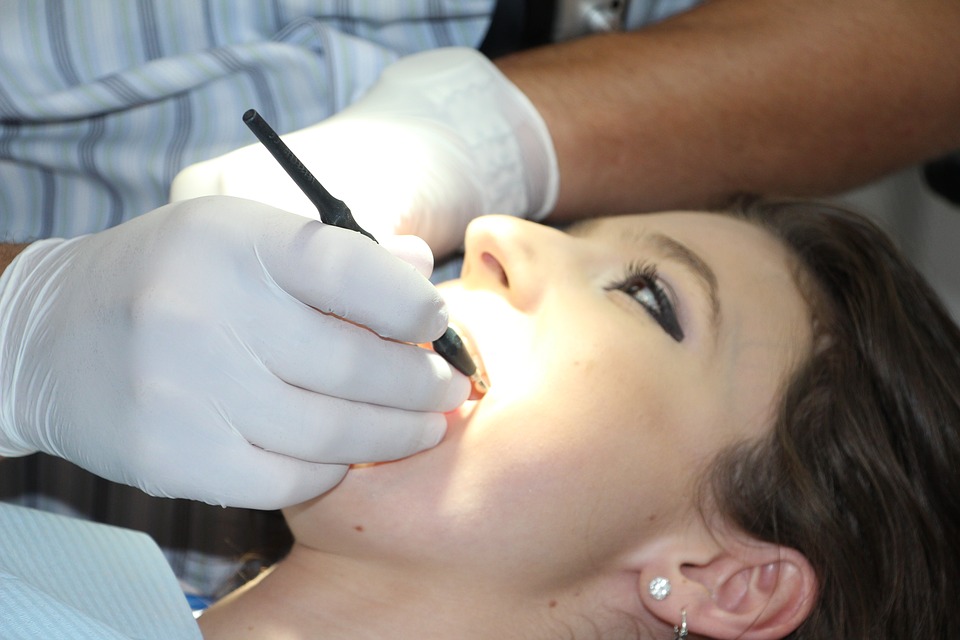Other Articles,
Bleeding Gums? Gingivitis and Gum Disease
By Buttercup 7 Day Dental 05th Dec 2017
Are your gums red, sore and swollen? Do they bleed after brushing or flossing? If you answered a solemn yes, you might very well have gum disease.
But don’t panic! Gum disease is extremely common and often very easily treated. In fact most adults in the UK currently suffer from it to some degree, and most people will experience it at least once in their life, so you are not alone.
With so many people suffering with gum disease we wanted to answer the most common questions and give you all the information you need to understand what gum disease is, how it can affect you and what you can do about it.
 What Is Gum Disease?
What Is Gum Disease?
Gingivitis is an inflammation of the gums caused by the buildup of plaque, and is the initial stage of gum disease.
Plaque is the sticky, colourless film of bacteria that forms on the teeth and gums.
If plaque isn’t removed from teeth by brushing and flossing it continually builds up and hardens to form “tartar” that needs professionally removed.
Both tartar and plaque contain harmful bacteria and toxins that irritate the gums, causing them to swell and become sensitive often resulting in them bleeding after brushing. It can also cause bad breath that lingers even after you have brushed your teeth.
Thankfully, as this is the early stage of gum disease it can be easily treated as no tissue or bones have been affected.
However, if gingivitis is left untreated it can then become a worse infection called periodontal disease or periodontitis. This is the later stage of gum disease and occurs when the bone below the gums get inflamed or infected.
This infection of the bone can cause the gums to pull away from the teeth and form “pockets”. These pockets are tricky to clean and therefore collect plaque and bacteria more easily. With the bacteria and toxins released from the plaque, as well as the body’s response to fight the infection, the bone and tissue surrounding the teeth start to break down.
This causes the teeth to become loose, and if gum disease isn’t treated, you may start to lose teeth or need to have them removed.
 What Causes Gum Disease?
What Causes Gum Disease?
Gum disease is mostly caused by poor dental hygiene resulting in the buildup of plaque on the teeth and gums.
However their are other common risk factors that increase the risk of developing gingivitis such as:
- Smoking which prevents the gum tissue from healing
- Crooked or overlapping teeth can cause plaque to accumulate easier as it can be trickier to clean
- Hormonal changes in puberty, pregnancy, menstruation and menopause result in the gums being more sensitive and susceptible to bacteria.
- Some people are more prone to severe gum disease based on their genetics.
- Certain illnesses and diseases can affect the condition of your gums. Such as diabetes, cancer and HIV.
- Poor diet and nutrition can increase the formation of plaque as well as impair healing if certain nutrients and vitamins are not included.
- Certain medications that might reduce the amount of saliva produced, making the gums more susceptible to infection.
- Not seeing your dentist regularly
What Are The Symptoms of Gum Disease?
Not everyone will experience, the same, or any symptoms. Sometimes gum disease can progress painlessly and without notice, however there are some warning signs for gum disease which include:
- Bleeding gums after brushing or flossing
- Red, swollen and tender gums
- Bad breath even after brushing
- Pus at the gum line
- Gums receding or pulling away from the tooth
- Loose teeth that move around
- The formation of pockets between the teeth and gums
- Changes in your bite
- Tooth loss
If you experience any of these symptoms you should let your dentist know. They will then be able to carry out a thorough dental examination to check the health of your gums.
They do this by using a periodontal probe to check for inflammation, and to measure the gap between your teeth and your gums to see if they are healthy or receding.
In some cases, a number of X-rays may be needed to check the condition of your teeth and jaw bone. Based on the results you may get referred to a periodontist.
 What Is The Treatment For Gum Disease?
What Is The Treatment For Gum Disease?
The main goal of treatment is to control the infection and eliminate the factors that are causing the person to be more susceptible to gum disease.
Luckily a lot can be said for keeping up with good and thorough oral hygiene and visiting your dentist for professional dental cleanings.
Gingivitis, if caught in the early stages, can successfully be reversed through good oral hygiene and professional cleaning. Including brushing your teeth twice a day with fluoride toothpaste and flossing regularly. As well as making sure to attend your dental checkups at least twice a year.
In cases where gingivitis has led to periodontal disease you may require more intense treatments such as:
- deep scaling and root planing
- surgical treatment
- antibiotic medications
The worse your gum disease becomes, the more invasive the treatment is likely to be. To avoid surgery, practice prevention.
Can You Prevent Gum Disease?
Gingivitis can be prevented by proper and consistent oral hygiene. Brush twice a day and floss regularly.
Adjust your diet to avoid foods that will further damage your teeth, and add in foods that will help strengthen and restore your teeth and gums.
Drink plenty of water to help produce saliva keeping the bacteria at bay.
Visit your dentist. It is important to have regular checkups with your dentist so any problems with your teeth and gums can be found and treated early.
If you are worried about your dental health please feel free to contact us, book an appointment online or call us on 0141 334 4550.
Similar Posts
Does Invisalign discolour your teeth? Myths about this brace debunked
By Hannah Kemp • 06th Jan 2021
Holistic Dental Care at Buttercup 7 Day Dental: Your Dentist in Glasgow
By Hannah Kemp • 02nd Oct 2023


